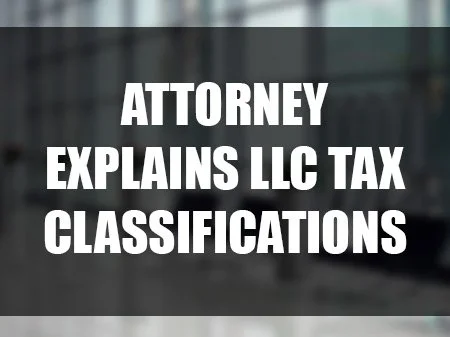Attorney Andrew Bethel explains what happens when the sole member of an LLC passes away in California. He covers the process of dissolution, default rules for distribution, transfer of ownership interests, and steps to wind up the LLC's affairs. If you're dealing with the death of an LLC owner, this video provides important information.
Read MoreAttorney Andrew Bethel shares tips for estate planning during a recession or times of high inflation. He advises reviewing your estate plan regularly, ensuring adequate insurance coverage, prioritizing debt payment, being mindful of taxes, seeking professional advice, and considering gifting assets to heirs. By taking these steps, you can protect your assets and ensure your wishes are honored after you pass away, even in times of economic uncertainty.
Read MoreThis article explores the privacy concerns in estate planning, comparing the public process of probate to the private administration of a revocable living trust. Learn about the parties who may access your trust documents and the role of a certification of trust in maintaining privacy. Discover the advantages of a revocable living trust in protecting your estate's confidentiality and ensuring a smoother estate administration process
Read MoreStarting a business in California? Consider forming an LLC for personal liability protection and tax flexibility. LLCs have 4 tax classifications: Sole Proprietorship, Partnership, S Corporation, and C Corporation. Single-member LLCs default to Sole Proprietorship, multi-member LLCs to Partnership. LLCs can elect to be taxed as an S or C Corporation to avoid double taxation or gain corporate benefits.
Read MoreLearn how to start an LLC in California with attorney Andrew Bethel's essential steps. Choose a unique name and file the Articles of Organization with the California Secretary of State, online and after checking for name availability. Get an EIN from the IRS for tax purposes and file a Statement of Information within 90 days of filing the Articles to maintain good standing. This video covers important topics like LLCs, working with the Secretary of State, Operating Agreements, and state and local taxes.
Read MoreIf you don't have any heirs, you may be wondering what happens to your estate. Attorney Andrew Bethel discusses options available to you, including leaving your estate to extended family, friends, or charitable organizations. He also cautions against common pitfalls, such as bequests to caregivers, and provide key takeaways for creating a comprehensive estate plan.
Read MoreFive tips for choosing the right person to manage one's estate as executor or trustee, including considering the amount of work involved and the location of the person, choosing someone trustworthy, selecting someone who can step in right away if needed, considering a professional fiduciary or bank, and avoiding making decisions based on others' opinions. The responsibility of estate management is significant, and it's important to select someone who is capable and trustworthy.
Read MoreAttorney Andrew Bethel discusses testamentary capacity - the ability to understand and make decisions about one's estate when setting up a will or trust. He cites a recent California case, Eyford v. Nord, which addressed the issue of whether a person who initially lacked testamentary capacity but later regained it could set up a trust. The court ultimately held that as long as the person had the requisite capacity at the time of executing their will or trust, those documents are valid. Andrew emphasizes the importance of understanding testamentary capacity when creating estate planning documents and consulting the probate code for guidance.
Read MoreAttorney Andrew Bethel answers the common question of when to put one's home in a trust. It is advisable to do so as soon as possible and to use an attorney’s help in doing so. Andrew goes on to list some reasons why there's no time like the present to do this, including avoiding probate, simplifying the administration of one's estate, and keeping matters private. He also gives a brief overview of how to put one's home in trust.
Read MoreAttorney Andrew Bethel advises on estate planning for investment and retirement accounts, including brokerage accounts, 401(k)s, and IRAs. To avoid probate, it is recommended to place brokerage accounts in a trust, even if they don't trigger a probate issue alone. Retirement accounts can have designated beneficiaries who can claim the assets without probate, and individuals are usually recommended as beneficiaries rather than trusts. However, trusts can be advantageous as beneficiaries in certain situations, such as when taxes are owed on assets in an IRA or 401(k). Trusts can be amended during the client's lifetime and can serve as a safety net if initial beneficiaries predecease the client. The probate threshold in California is a gross estate of $184,500 or more.
Read More








